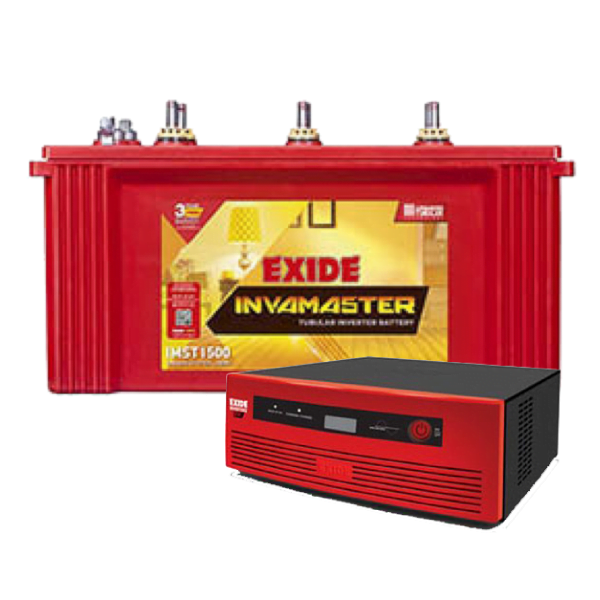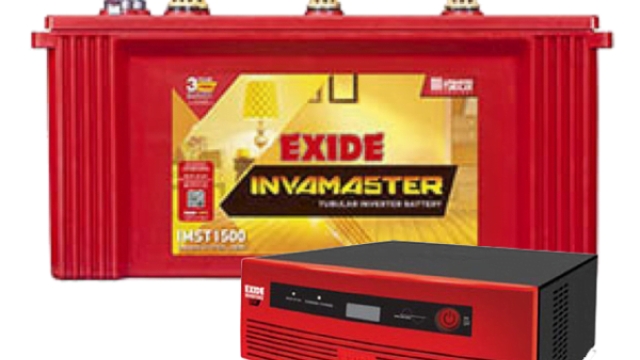
In today’s fast-paced digital world, ensuring the continuous operation of our devices has become increasingly important. A sudden power outage or fluctuation can disrupt our work, compromise our data, and even damage sensitive equipment. This is where UPS batteries come into play, providing a reliable source of backup power that safeguards our electronic devices against unexpected interruptions. Understanding how UPS batteries work and the various options available can empower you to make informed decisions about the best solutions for your needs.
Whether you are a business looking to protect critical systems or a home user wanting to keep your devices running during outages, having the right UPS battery can offer peace of mind. By offering extended runtimes and advanced features, these batteries ensure that you remain connected and secured when it matters most. In this ultimate guide, we will explore the types of UPS batteries, their benefits, and tips for choosing the right one for your setup. Dive in to learn how you can power your peace of mind with the right UPS battery.
Understanding UPS Batteries
UPS batteries, or uninterruptible power supply batteries, serve a vital role in ensuring that your devices remain powered during outages or disruptions. These batteries provide backup power to essential electronics, such as computers, servers, and networking equipment, allowing them to continue operating smoothly. In many cases, they enable you to save your work and shut down your systems properly, preventing data loss and hardware damage.
There are different types of UPS batteries available, including sealed lead-acid, lithium-ion, and nickel-cadmium. Each type has its advantages and disadvantages in terms of lifespan, recharge time, and maintenance requirements. For instance, sealed lead-acid batteries are cost-effective and widely used in many UPS systems, while lithium-ion batteries are becoming more popular due to their longer lifespan and reduced weight. Understanding these differences can help you choose the right battery for your needs.
In addition to battery type, it’s essential to consider the total power capacity and runtime of your UPS system. Power capacity is typically measured in volt-amperes (VA) and indicates how much equipment the UPS can support. Runtime varies based on the load connected to the UPS and the battery’s capacity. Evaluating your power requirements and understanding the specifications of UPS batteries will ensure you invest in a system that aligns with your operational needs.
Key Features to Consider
When selecting a UPS battery, the first aspect to evaluate is the capacity. This is measured in volt-amperes (VA) or watts, and it determines how much power the UPS can supply during an outage. Matching the capacity with your equipment’s power requirements is essential to ensure that your devices remain operational for the desired duration when the power goes out. Higher capacity UPS batteries may provide longer backup times, but they also tend to be more expensive and larger in size.
Another critical feature is the runtime, which indicates how long the UPS can keep your devices powered during an outage. This depends on the battery size and the load on the UPS. It is important to consider the devices you need to protect and how long you need them to be functional during a power interruption. Many manufacturers offer specifications that can help you estimate the runtime based on different loads. Keeping your needs in mind will guide you to choose a UPS battery that fits.
UPS Uninterrupted Power Supply
Lastly, consider the type of battery used in the UPS. Most modern UPS systems utilize lead-acid or lithium-ion batteries. Lead-acid batteries are traditional, cost-effective, and have a proven track record, but they can be bulky and may require regular maintenance. On the other hand, lithium-ion batteries are lighter, more compact, and have a longer lifespan, though they come at a higher price point. Assessing the pros and cons of each battery type will help you make an informed decision based on your specific needs and budget.
Maintenance and Best Practices
Proper maintenance of UPS batteries is crucial for ensuring their longevity and reliability. Regularly inspect the batteries for physical signs of wear, such as leaks, corrosion, or swelling. Keep the battery terminals clean and free from dust and dirt to maintain a good electrical connection. It is also important to check the battery’s voltage levels periodically using a multimeter. This will help determine if the battery is functioning correctly and if it requires replacement.
Battery testing is another vital aspect of maintenance. Many UPS units come with built-in diagnostic tools that can run automatic tests on the batteries. Schedule routine tests to evaluate battery performance under load. This proactive approach can identify weak batteries before they fail during critical operations. In addition, always ensure that the UPS is kept in a cool, dry place, as extreme temperatures can adversely affect battery health and lifespan.
To extend the life of your UPS batteries, consider implementing a regular replacement schedule based on the manufacturer’s recommendations. Even batteries that are well-maintained have a finite lifespan. Additionally, avoid completely discharging UPS batteries as this can lead to reduced capacity and performance over time. By following these best practices, you can enhance the reliability of your UPS system and ensure it provides peace of mind when you need it most.
